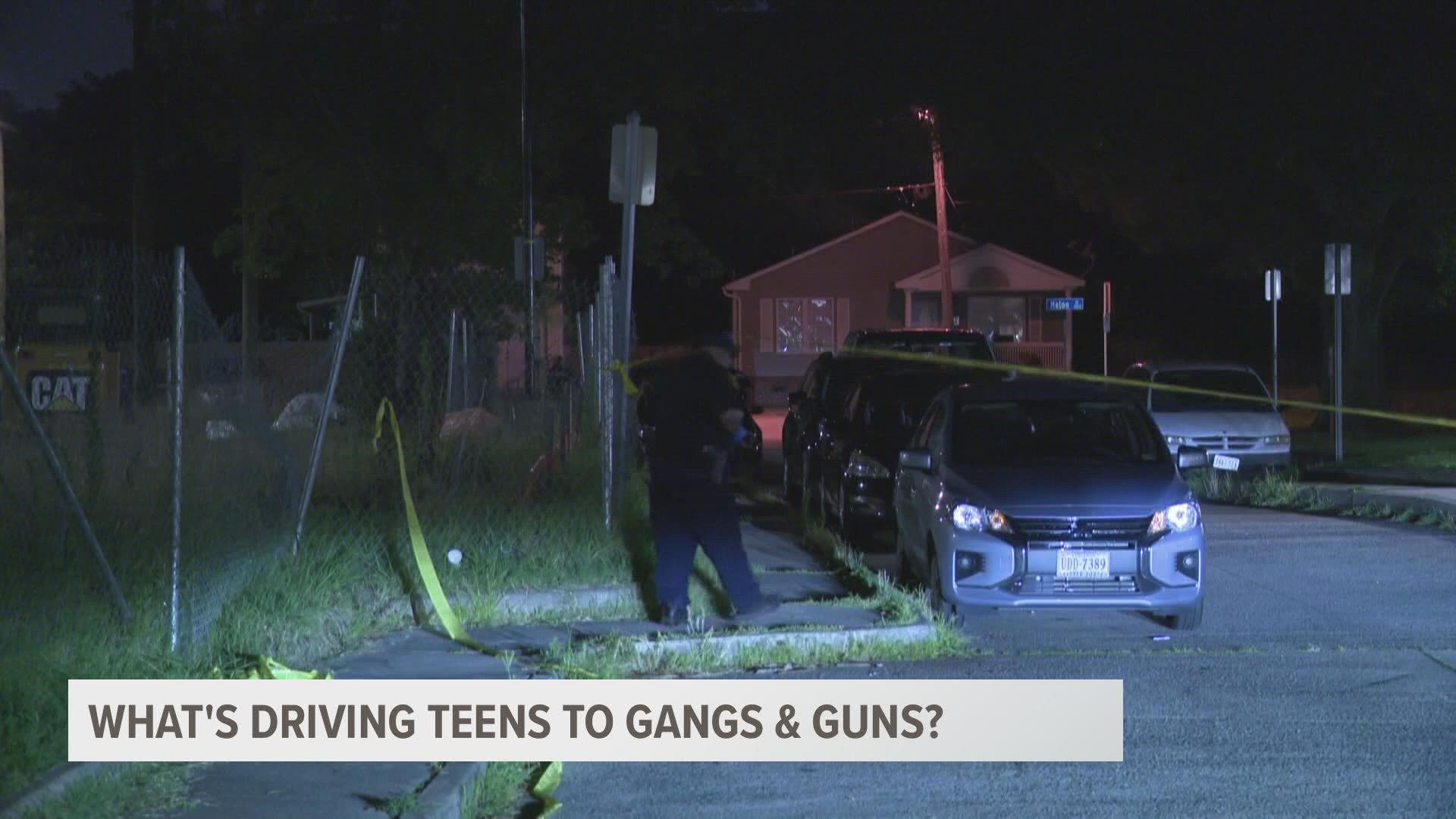CHESAPEAKE, Va. — Gun violence among teens is nothing new for Hampton Roads, and law enforcement agencies are preparing for a violent summer.
But with all of the shootings the 757 has already endured in 2022, the question is: What is driving teens towards guns and gangs?
Joel Jones has some idea. In the 1980s, he was running with a rough crowd in Arkansas.
“At like 12, I was initiated into a gang,” he said.
He said he’s been to jail for things like theft and fighting and was headed down the wrong path.
“During that era, it was said that young Black men were considered an endangered species because we were dying by the age of 24 in these low-income areas, in the hood.”
For him, joining a gang was about finding structure, guidance and belonging to something. He also longed for a father figure.
Now, after serving 24 years in the U.S. Navy, he’s trying to keep kids from going down that dark path by making sure they have firearm training.
You might be thinking, 'Why would you want to train someone to use the very weapon used to kill so many in Hampton Roads?'
For Jones, it’s about teaching young adults that what they're holding in their hands is not a toy.
“As you become more aware, you become more responsible, and we can lessen, totally eliminate over time, this gun violence that’s happening with our youth.”
He’s teaching them the law, the mechanics of the gun and the gravity of the machine they’re holding in their hands — because he says many of them have no idea.
Detective Marc Coull is working from within the Chesapeake Police Department’s gang unit to reduce the recruiting pool for local gangs.
“Kids that are in these neighborhoods that you know there’s a gang element in there, when you ask them, ‘What’s a gang gonna do for you?’ They’ll tell you 'prison and death.'”
Coull said he takes community policing to heart and works to build relationships with those kids.
He said he’s learned, from talking to them, that their reason for joining a gang and getting a firearm boils down to one thing.
“It’s self-esteem," Coull said. "It’s self-value at the end of the day. I can attribute almost all criminal behavior to how one feels about themselves.”
Coull says he sees three sets of people. The first are the ones that are over the fence, that are already facing the consequences of their actions.
Then, there are the ones who are teetering.
“There’s kids that are on that fence that are making decisions you know, which way to go, and it might be that ‘This is what my friends are doing,’ ‘This is what I have to do, this neighborhood, these three blocks are the only three blocks,' so they’re kind of teetering.”
Finally, there are the ones who are looking up.
“The person that’s teetering might be a brother or a cousin, someone that has influence in their life greater than I have, and that’s a younger set of kids.”
He said it’s not too late for the latter two.
“Lead with empathy and compassion,” Coull said. “That’s how we get our way out of it, and it has to be earlier intervention.”
During a gun violence panel discussion, Coull told the crowd that teens sometimes don’t understand the consequences of their actions until it’s too late.
“We can’t out arrest our way out or tough or scare anybody straight,” he said. “These kids have seen massive amounts of trauma and it’s not random. You don’t wake up at 16, 17 years of age and say, ‘Hey I’m gonna be a gang member today.’”
Jones said having a gun and being a part of the gang made him feel emboldened.
“I didn’t have that concern for others, just reckless, doing things that were totally against what my mom had been teaching us.”
He said growing up, he thought the police were the enemy. Now, he views them as a resource for these kids.
“Despite the Defund the Police movement, these officers are truly out here to make a difference, otherwise why do you join?” Jones said. “I feel that they can really develop good relationships with our officers and the officer can be a really good resource to other outlets.”
That’s exactly what Coull said he’s trying to do.
“I can tell the kids until I’m blue in the face, ‘You have value, you have this’ and when you go back into a neighborhood, there might be a failed adult in there that tells them ‘Everything that officer just said is lie.’”
He said he’s trying to overpower those negative influences.
“If you’re constantly told ‘This is the bad neighborhood, you come from the bad neighborhood' or 'We don’t want to talk to you' or 'You can’t go here, you can’t go here,’ if you’re looked at with a jaundiced view because of where you live, there’s two ways to deal with it,” Coull said.
“You can sit there and say, ‘Alright, I’m gonna make something of myself and get out of here and I’m gonna be the example,’ or you can say, ‘You know what, he’s wrong, the entire world is like this and not only that, these three blocks, this piece of housing, this whatever, this is the best it is and I’m a better, badder individual because I’m from here.’”
Both men say between mentors, outreach programs and the police, there are ways to engage these kids and show them options beyond what’s on their block.
“These kids want to belong to something. They truly want to belong to something,” Jones said.
Jones is teaching firearm safety classes throughout June for National Gun Safety Month.
They meet every Monday at Superior Gun and Pawn at Lishelle Place in Virginia Beach.

